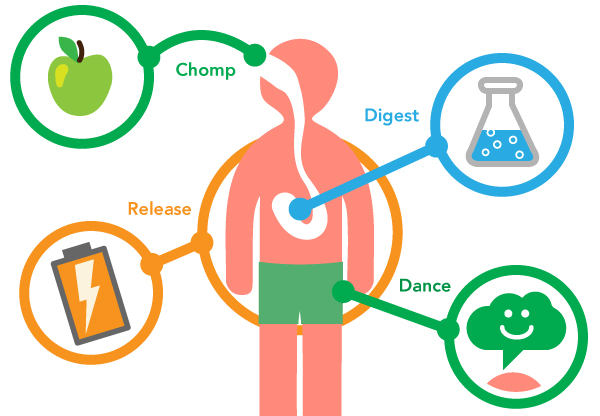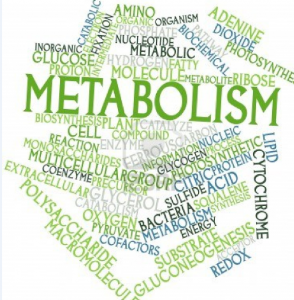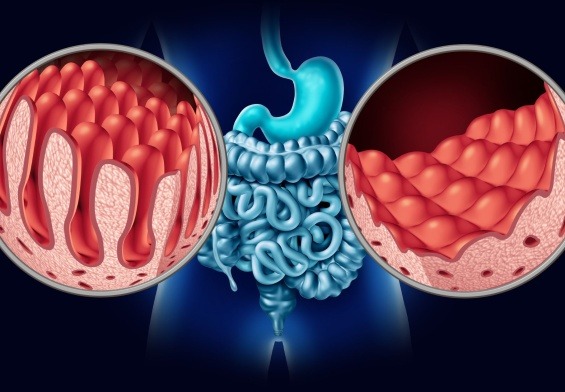 Metabolism. We’ve all heard of it, and we’ve likely all talked about it. We may even know if ours is slow or fast. But how much do we really know about metabolism? If you were asked to explain it, could you? Does it even matter if you know anything or nothing at all about your metabolism? Actually, knowing how your metabolism works can help you to make better choices in your diet and exercise routine. It can even help you to decide what kinds of exercise and foods will work best for your particular metabolism. The simple answer to the above question is: metabolism is the rate at which your body can process the foods you consume. Of course, there’s a lot more to it, and the more you know, the better off you, your body, and your fitness results will be. Here’s some info from gastroenterologists in Queens on the subject of metabolism. A top GI doc near you can help you to understand how metabolism works and how to use this to achieve results you desire.
Metabolism. We’ve all heard of it, and we’ve likely all talked about it. We may even know if ours is slow or fast. But how much do we really know about metabolism? If you were asked to explain it, could you? Does it even matter if you know anything or nothing at all about your metabolism? Actually, knowing how your metabolism works can help you to make better choices in your diet and exercise routine. It can even help you to decide what kinds of exercise and foods will work best for your particular metabolism. The simple answer to the above question is: metabolism is the rate at which your body can process the foods you consume. Of course, there’s a lot more to it, and the more you know, the better off you, your body, and your fitness results will be. Here’s some info from gastroenterologists in Queens on the subject of metabolism. A top GI doc near you can help you to understand how metabolism works and how to use this to achieve results you desire.
Metabolism and how it works
As mentioned above, metabolism is the rate at which your body can process the foods you consume. It is, in essence, chemicals that work together in your cells—and how those chemicals react to each other determines how well your body converts food into fuel. There are two related words that, if you know a little about them, will also help you to better understand metabolism. These words are catabolism and anabolism. Catabolism refers to how your body breaks down the different components in the foods you eat (proteins, fats, carbs) into simpler forms that then can be converted into energy. Anabolism refers to the processes in your cells that support their growth and the storage of all that fuel.
How to Speed Metabolism up
Most of us probably are interested in speeding up our metabolic rates, or the rate at which foods are converted into energy. We all know someone who, it seems, no matter what or how much they eat, they never gain weight. Unless that person is an Olympic athlete and just burns energy due to the hours and hours of exercise they do each day, they probably have a high rate of metabolism. Here are some tips on speeding up your metabolic rate:
Breakfast
It really is true—eating a good breakfast each day is very important to your health, particularly to your metabolic rate. The problem with not eating breakfast (or not eating a good one) is that your body thinks it’s starving, thereby slowing your metabolism in order to conserve energy. In fact, eating six smaller meals rather than three big ones also helps because your metabolism never really has an opportunity to slow down. However, be sure to make those six small meals healthy by eating a little protein and fresh produce at each one. In other words, don’t consider a mid-afternoon candy bar to be one of those meals.
Coffee and green tea
Sipping coffee, or better yet, healthful green tea, throughout the day is a great means of speeding up your metabolic rate. In fact, a recent study showed that participants in the group who sipped caffeinated coffee actually increased their metabolic rate by more than 15 percent over those who drank decaffeinated coffee.
Exercise
You shouldn’t be surprised to hear that exercise is the ultimate means of speeding up your metabolism. The energy expended during physical activity greatly increases your metabolic rate. And the great news is, when it comes to exercise, it’s all up to you! You can control how much (or sadly, how little) you exercise. Moral? Get moving now!
Everyone knows knowledge is power. And the more you know about how metabolism works and how your particular metabolism works, the more power you’ll have when it comes to choosing the foods you’ll eat and the exercises you’ll include in your daily activities. Learning about metabolism and how it works is like learning just about anything else—it can help you to improve your life because you’ll no longer be in the dark about how your body processes the foods you consume. And the more you can improve your diet and exercise routine, the more healthy and active a life you can lead. If you’d like to learn more about how metabolism works, or about your own metabolic rate, consult with a gastroenterologist in your area of Queens. If you don’t have a gastroenterologist, search on ‘gastroenterologist near me’ in order to find a qualified GI specialist in your neighborhood.



